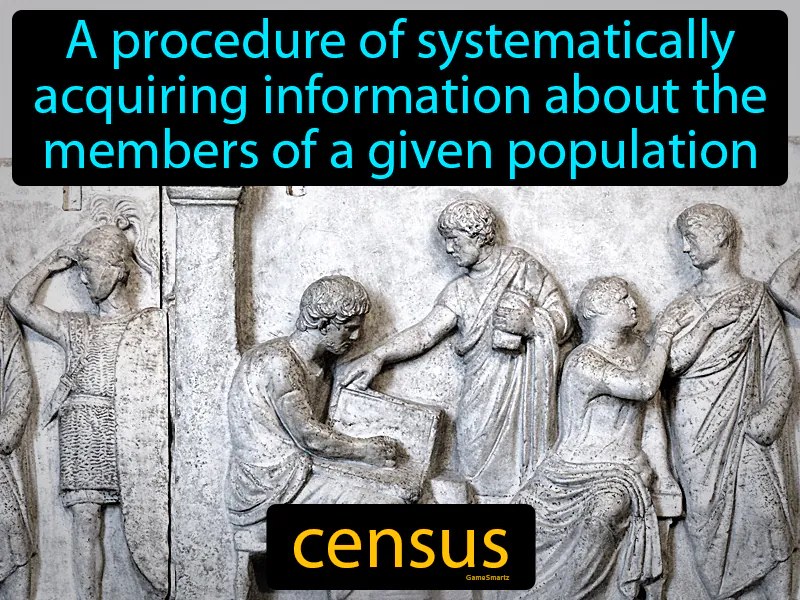Census
Census: Easy to understand
In Ancient Rome, the census was a critical tool for organizing the population, determining taxes, and figuring out military service obligations. It helped manage the vast Roman Empire by keeping track of its citizens and resources. During the time of Jesus, a Roman census required Joseph and Mary to travel to Bethlehem, influencing the story of Jesus's birth in Christianity. Today, the census continues to play an essential role in modern society by helping governments allocate resources and political representation based on population data. For example, if your town grows significantly, the census data can lead to more funding for schools or public services, directly impacting your daily life and community development.

Practice Version

Census: A procedure of systematically acquiring information about the members of a given population. Census. In history, a census is a count of people and households that helps governments make important decisions.